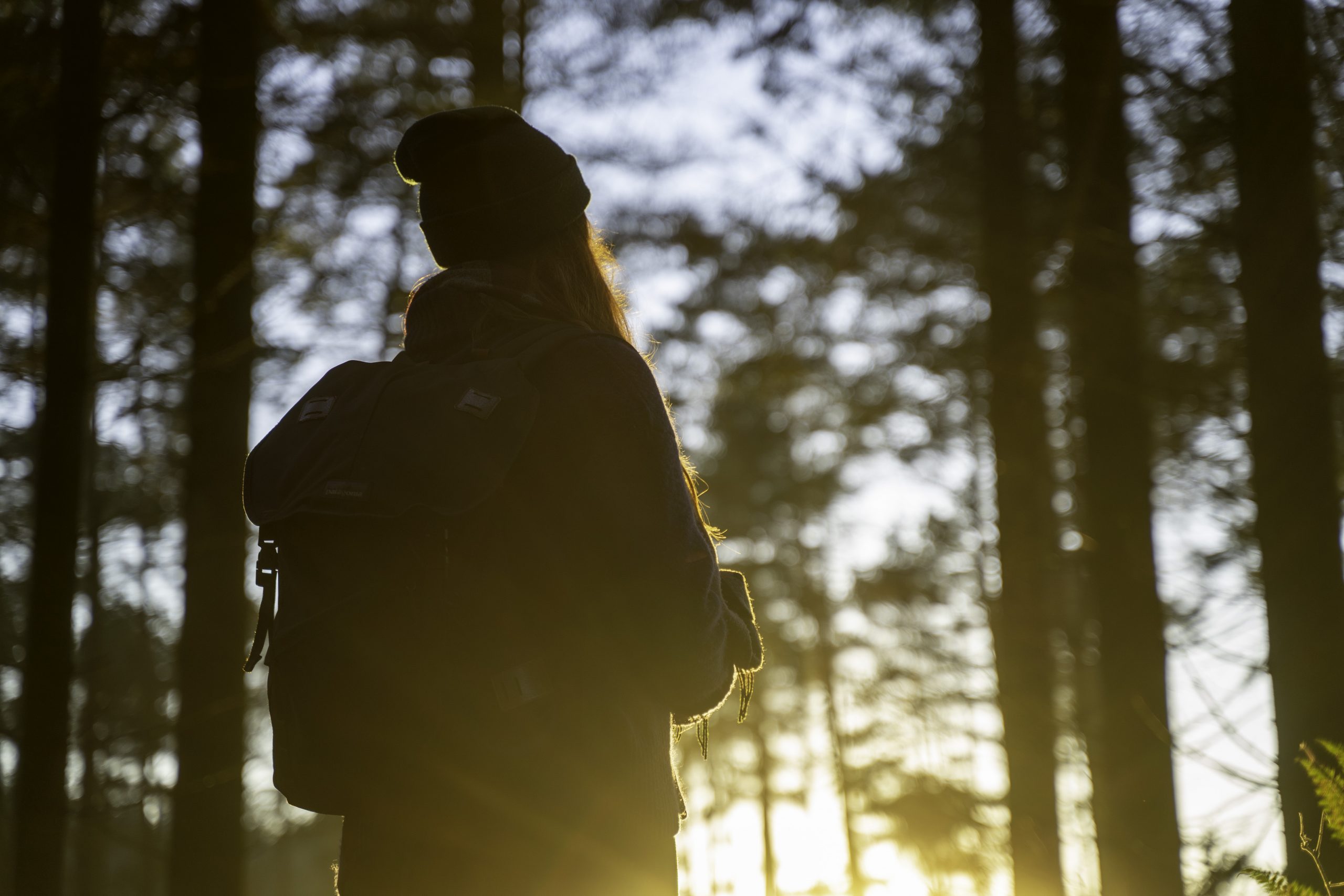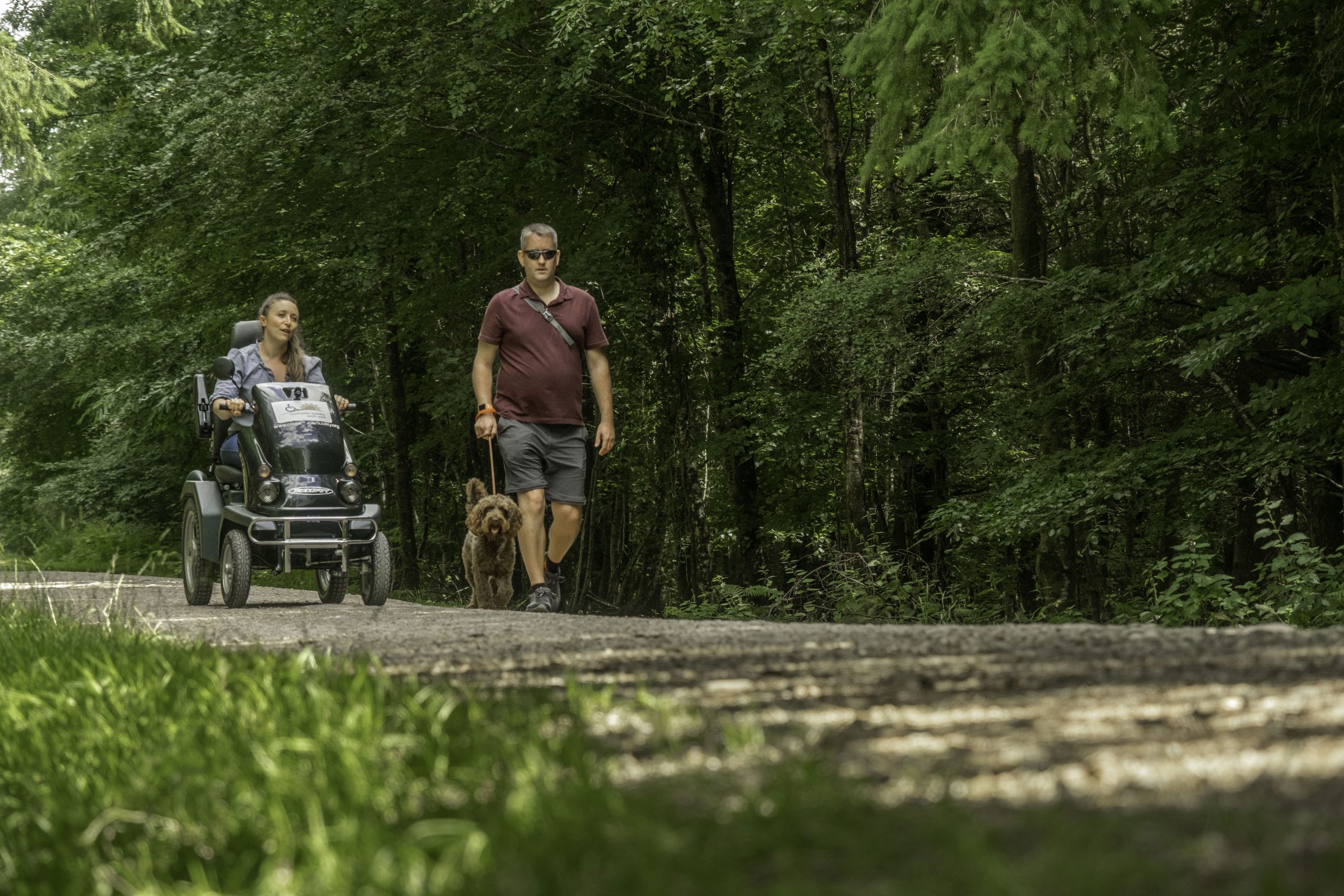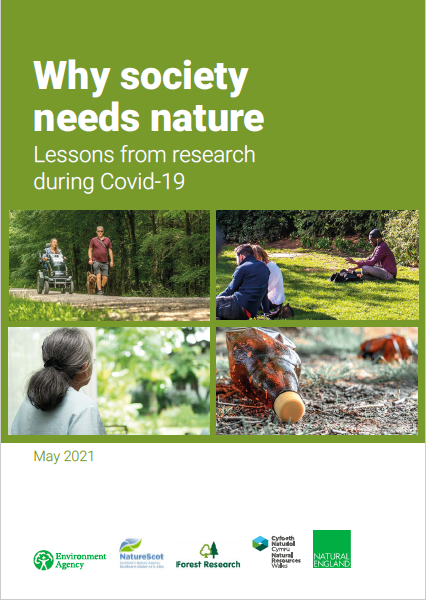Summary
The Covid-19 Pandemic and associated ‘lockdown’ restrictions in 2020 impacted people’s lives in many ways, including how often people visited nature and their experiences of it. This provided a unique opportunity to better understand human relationships with nature, and how these change.

Research Objectives
This was a joint collaborative piece of work between Natural Resources Wales, Forest Research, Natural England, NatureScot and the Environment Agency. It aimed to bring together and summarise research conducted in each organisation concerning how people, both adults and children, visited green and blue natural spaces during the Covid-19 pandemic in 2020, and their experiences of this. We summarised this research into one report outlining key findings and providing case study examples.
Findings and Recommendations
Outdoor visits
There was a polarised picture of experience, while some people’s interaction with nature increased during the pandemic, others visited nature less or not at all. Overall, the number of adults visiting natural spaces in England in spring 2020 was lower than expected. This was also found in the site-based data from Wales. Six in ten children in England reported spending less time outdoors since the start of coronavirus, more than double those who spent more time outside. In both England and Scotland, staying at home to stop coronavirus spreading/adhering to government restrictions was the top reason for not spending time in nature. This was also reflected in case study responses to site visits in Wales, along with Covid-related land management restrictions such as car park closures. Socio-economic status, age and health status had an influence on people’s ability to access nature.
Place and activity
Urban green spaces were the most frequently visited of all natural spaces. Walking was the most popular activity, enjoyed by the majority of adults.
Benefits
74% of adults in England took more time to notice and engage with everyday nature, and in Scotland, there were increased levels of participation in watching wildlife and nature engagement activities.
Green and natural spaces were seen as places that should encourage mental health and exercise by 89% of people in England. 70% of people in Scotland reported mental health benefits from enjoying nature. Qualitative data from Wales also reflected these wellbeing and mental health benefits.
Issues and problems
Unprecedented visitor numbers at some sites created recreational ‘hot spots’, with negative environmental impacts experienced; from unsuccessful breeding of rare bird populations to overcrowding and littering at bathing waters and green space sites. 
Conclusions
The evidence in the report clearly highlights that increased engagement with nature significantly helped to support many people in maintaining their physical and mental health and wellbeing during the restrictions and stresses of living through the global pandemic. The seismic increase in visitor numbers at many of the nations’ most important natural spaces indicates that there is unmet demand for outdoor recreation space, both for local (daily) use and further away (planned trips and activities). This has brought a number of environmental and land management issues to the fore. Encouraging people to benefit from the great outdoors, whilst at the same time protecting nature, needs strategic planning and adequate investment in more suitable places for a range of outdoor recreation activities and the resources to maintain their quality.
Our Involvement
Forest Research jointly wrote the publication with the other agencies and provided data from its research on engagement with nature during the Covid-19 restrictions for those who were interested in or connected to nature in England.

